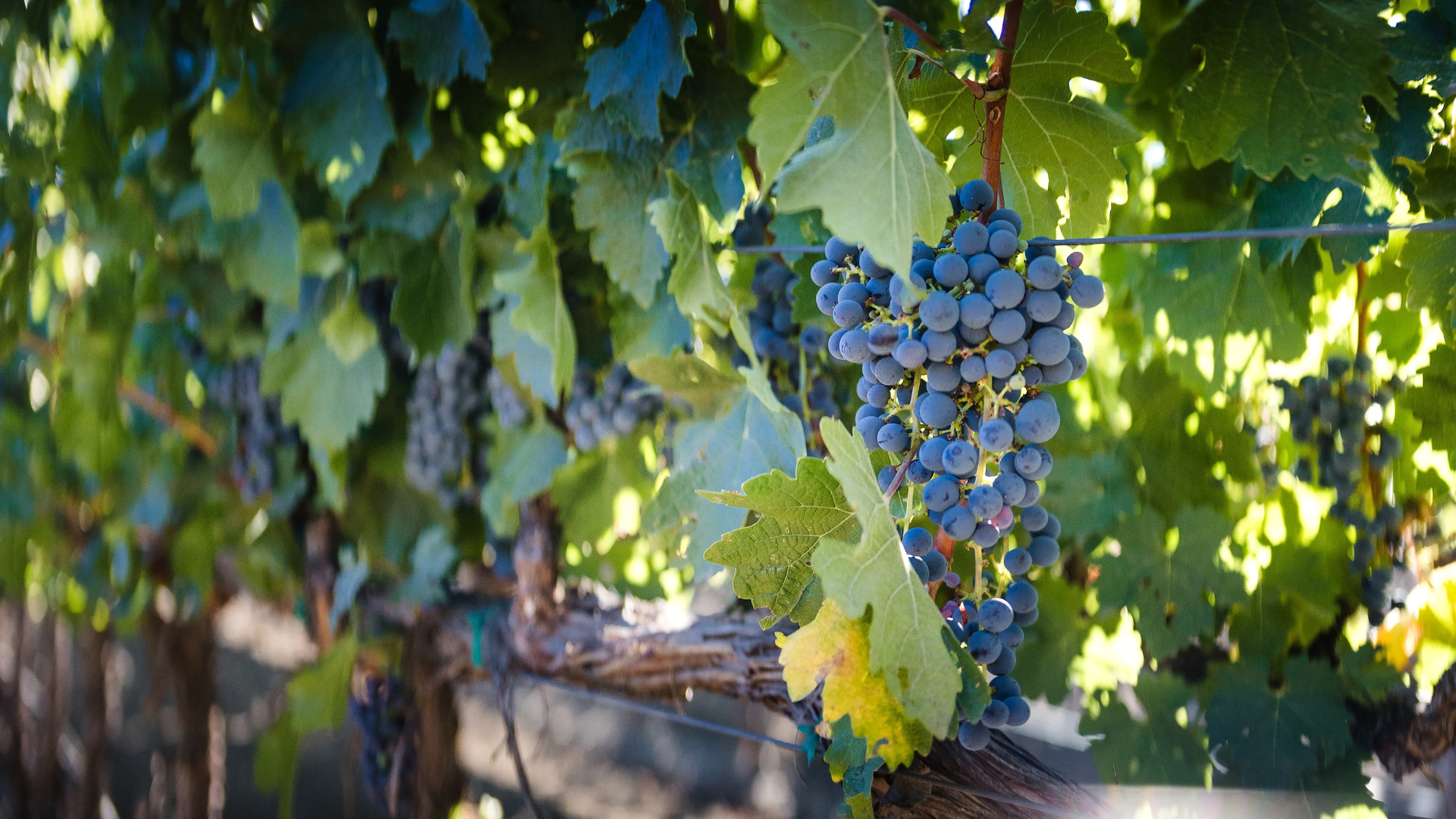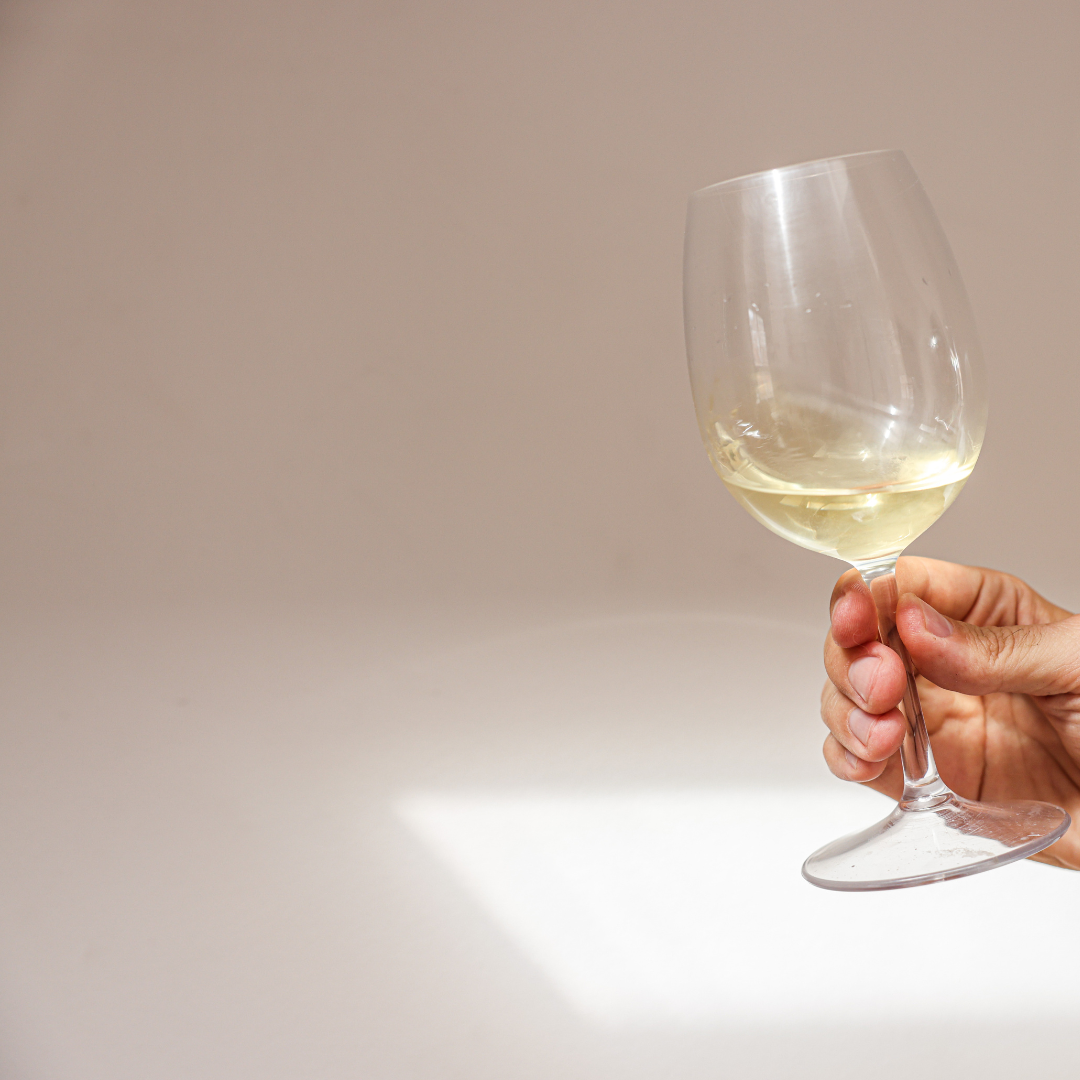
Everything You Need to Know About Organic Grapes + Organic Wine
The Wander + Ivy team is super passionate about this topic! We care a lot about what we put in our bodies, including wine. So let's talk about organic grapes and organic wine. The key questions we'll be answering include (1) what does it mean to be organic and (2) why does it matter? We hope that sharing these bits of knowledge will make you feel more informed when deciding on your next glass of vino and help you understand the WHY behind Wander + Ivy.
What exactly is “organic wine”?

A lot of people wonder what “organic wine” actually means. The definition of organic wine can be broken down into two parts. The first is based on how the grapes are grown and the second is the absence of certain ingredients commonly added to wines in the production process.
First, the wine must contain 100% organic grapes, meaning that the grapes used to make the wine have been grown in accordance with USDA organic standards (in other words, no artificial or synthetic chemicals, such as pesticides and herbicides, can be used in the grape growing process). Second, the wine cannot contain any added sulfites (hint: this is the key differentiator for “organic wine”). We’ll return to the topic of sulfites later.
What do all the labels mean?
You may see the term “organic” featured on wine labels in several ways when shopping. Understanding organic wine labeling is an important first step in going organic. The three most common labeling categories include (1) wine labeled as “organic wine”, (2) wine labeled as “made with organic grapes”, and (3) wine labeled with an organic ingredient statement.
1. Organic Wine
As mentioned above, “organic wine” is wine made with 100% certified organic grapes and contains no added sulfites. This wine must be certified by a third party (for example, CCOF) and may display the USDA organic logo and/or the certifier’s logo on the bottle.
2. Wines Made With Organic Grapes
Wine labeled as “made with organic grapes” is what Wander + Ivy is categorized as! This second category is similar to “organic wine” in that the wine must be made with 100% certified organic grapes and must be certified by a third party. The key difference is that wines labeled as “made with organic grapes” may contain a low level of sulfites (up to 100 ppm), whereas “organic wine” contains no added sulfites.

We're sure you've seen the term “contains sulfites” on wine bottles before, but just in case you're not familiar with the definition, sulfites (also known as sulfur dioxide or SO2) are naturally occurring and added preservatives found in wine and many other foods and beverages (like dried fruit and soy sauce). During the fermentation process, low levels of naturally occurring sulfites are created in wine. On top of those naturally occurring sulfites, a winemaker will also generally add sulfites later in the winemaking process to protect the wine from bacteria and prevent oxidation. Simply put, sulfites help keep wine shelf stable. For some wineries, this is extremely important, especially when transporting wines internationally or aging over many years.
Typically, sulfite levels in wines range from about 5 ppm (parts per million, or mg/L) to about 200 ppm, and (fun fact!) white wines usually contain more sulfites than reds. A sulfite declaration statement (“contains sulfites”) is required on all wines with 10+ ppm of sulfites.
Wine labeled as “made with organic grapes” cannot display the USDA organic logo, but may display the certifier’s logo (for example, CCOF).
3. Wines Labeled with an Organic Ingredient Statement
The third category includes wine labeled with an organic ingredient statement. In order to list “organic grapes” as an ingredient, the wine must contain at least some certified organic grapes. However, unlike “organic wine” and wine “made with organic grapes”, wines that include an organic ingredient statement are not required to be produced to organic standards in a certified organic facility. As a result, these wines will not display the USDA organic logo nor the certifier’s logo.
Why does “organic” matter?

Synthetic chemicals, like pesticides and herbicides, are things we try to avoid in our diets. When you order a glass of red wine blend, you probably don’t think you’re asking for a glass of red…blended with glyphosate (the main ingredient in the weed killer Roundup). However, in 2019, Public Interest Research Group (PIRG) published research indicating that food and drinks (including popular wines) were contaminated with glyphosate. There is still a lot more research that needs to be done, but to date, the World Health Organization and the state of California have listed glyphosate as a probable carcinogen, making it something we would like to avoid in our food and our wine!
When opting for wines made with certified organic grapes, you avoid those chemicals that may be filtered down into your glass.
Not to mention, organic grape growers use agricultural methods intended to preserve the environment. These organic farmers utilize practices that maintain and improve fertility, soil structure and biodiversity, and reduce erosion. And, as we mentioned above, they also reduce the risks of human, animal, and environmental exposure to toxic materials. As an added bonus, organic production also means a more pure expression of terroir (the environmental conditions–especially soil and climate–in which grapes are grown and that give a wine its unique flavor and aroma).
Farmers and winemakers who were early to the organic wine game faced much skepticism at the start. But over time, it has been shown that the quality of wine is not affected by farmers choosing to grow organically. In fact, the organic grape growing process often results in a richer, more exciting pour!
So, it’s no surprise that the niche for organic wine and wine made with organic grapes is growing exponentially, we are so proud to be contributing to that growth. And we take pride at Wander + Ivy in offering mini wine bottles, such as our buttery Chardonnay and Red Wine Blend, crafted with 100% organic grapes.


